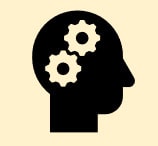Health Status and Health Care Use Among Adolescents Identified With and Without Autism in Early Childhood: An Easy-Read Summary
The is an Easy-Read Summary of the following report:
- Patrick S. Powell, PhD, Karen Pazol, PhD, MPH, Lisa D. Wiggins, PhD, Julie L. Daniels, PhD, MPH, et al (2021). Health Status and Health Care Use Among Adolescents Identified with and Without Autism in Early Childhood — Four Sites, United States, 2018–2020. Morbidity and Mortality Weekly Report (MMWR).
- What is autism?
Autism is a developmental disability. A person with autism may behave, interact, and learn in ways different from most other people. A person with autism may have trouble communicating with others. Some people with autism may have other health conditions. For example, a person can have both autism and anxiety (fear or worry). - What was this study about?
A person with autism may have trouble with everyday activities, problems with behaviors or emotions, and have questions about their general health and well-being. This study looked at trouble with everyday activities and health conditions to see if they were more common in teens with autism. It also looked at doctor visits for teens with and without autism. Finally, this study looked at if pediatricians (or a doctor who has children patients) help teens with and without autism make the change to seeing an adult doctor (or a doctor who has adult patients). Teens can start seeing an adult doctor around 18 years of age. It is important for child doctors to help teens make the changes they need to see an adult doctor. This change from a child doctor to an adult doctor is called healthcare transition, or HCT. - When should child doctors start talking to their patients about HCT?

The American Academy of Pediatrics (AAP) is a group of child doctors. The AAP says child doctors should start talking about the change to adult care when their patient is 12 years old. This is important for teens with autism and other health conditions who need to continue their care as an adult.
This is AAP’s plan for when child doctors should start to talk to their patients about when a teenager should change from a child doctor to an adult doctor.

*Age may vary by state and doctor
- Where did the information in this Easy-Read Summary come from?
- This information comes from the Study to Explore Early Development (SEED).
- Children and their parents were originally enrolled in the SEED study when the child was between 2 and 5 years old.
- SEED staff members called parents of the same children when they were between 12 and 16 years old between July 2018 and December 2020.
- Parents of 395 teens (aged between 12 and 16 years) with and without autism talked with SEED staff members.
- Parents were asked questions about the health and healthcare of their teenager.

For this study, parents of teens were asked questions about their child. The questions were related to the teen’s
- Everyday activities
- Autism symptoms (such as problems interacting with other people)
- General health status
- Problems moving their body or hands
- Problems with their stomach or sleep
- Problems with behaviors or emotions or other health concerns or conditions
- Visits to a doctor in the last year
- What did this study find?
- Teens with autism were less likely to have excellent overall health. They were less likely to be able to talk with others.
- Teens with autism were more likely to have problems using their hands for things like holding a spoon or pencil. They were also more likely to have problems moving their body.
- Teens with autism were more likely to have other conditions, such as anxiety and attention deficit hyperactivity disorder (ADHD).
- Teens with autism were more likely to need, but not get, different types of health
- Most teens with and without autism did not talk to their doctor about changing to adult care.
- Why are these findings important?
- Teens with autism need support but may not get the help they need. It is important for all teens—including those with autism—to talk to their doctor about how to get the help they need now and when they become an adult.
Healthcare transition planning can help teens
- Have a bigger role in their change from a child doctor to an adult doctor.
- Continue their current healthcare treatment into their adult care.
- Lower their chances of becoming sick.
How can more teens with and without autism get information about adult health care?
- Child doctors, parents, and teens can work together to help teens with autism change to adult health care.
- Doctors can talk to each other about how to support all teens as they switch to adult care.
- Doctors can make sure they talk about the change to adult care when their patient is 12 years old.
- Doctors can tell teens and their parents where to go to get more information.
- Parents and teens can ask their child’s doctor about the change to adult care.
- Doctors can get trainings that teach them about ways to help teens move to adult health care. The trainings can also help doctors feel more comfortable caring for the health of teens with autism and other health needs.
- Delivery of care for teens with and without autism can be improved, so that it is timely, organized, and includes the teen’s family.
Did You Know?

Teens with autism are 3
times more likely to need,
but not get, health care
than teens without autism.


